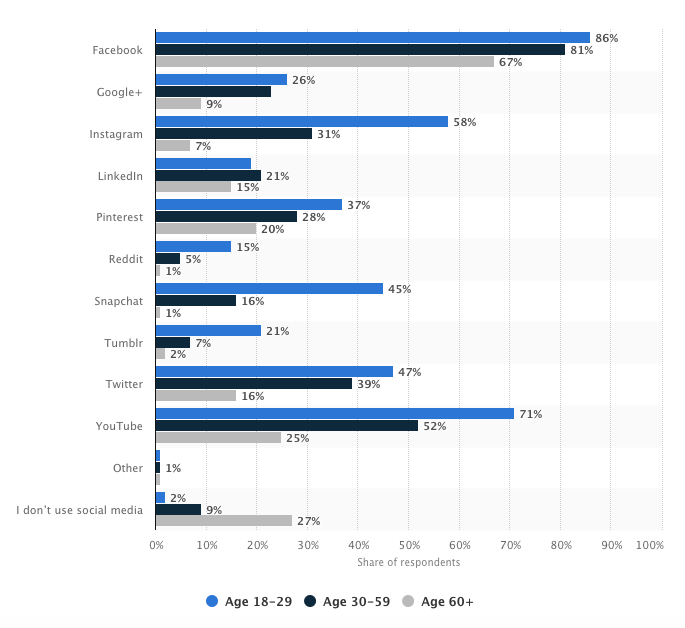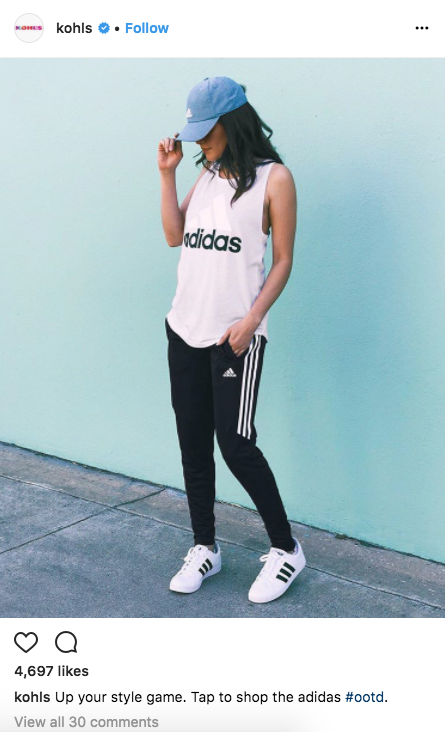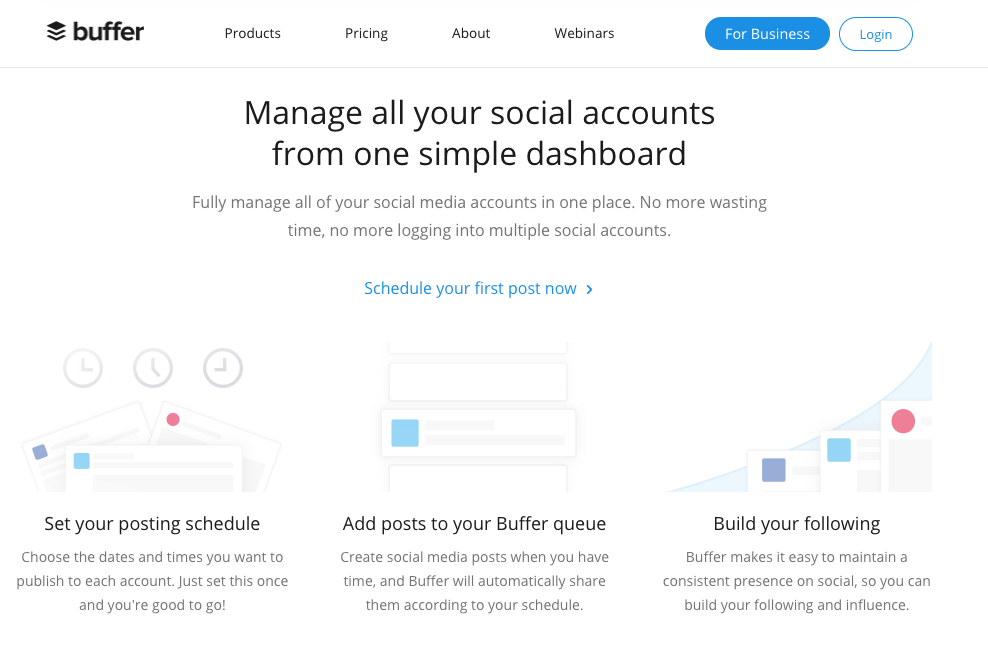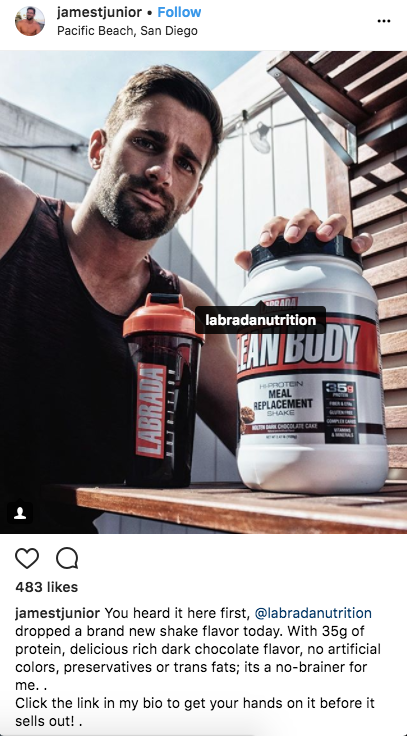Social media marketing needs to be a priority for every business across all industries.
Get with the times and understand the latest trends. Your customers are active on social media platforms, so you need to establish a presence as well.
Some of you may have mastered this already. You’ve been getting tons of new followers on social media. But now what?
Your follower numbers are increasing, but sales have reached a plateau or possibly even declined. How is this possible?
If this sounds like your current situation, here’s what you need to know. Just because someone follows you on one of your social media profiles doesn’t mean they are a customer.
Successful businesses know how to turn their followers into customers. Sure, social media is great for brand awareness, but that’s useless if it’s not leading to conversions.
I can teach you how to leverage these social media platforms to get more customers.
How many followers do you have? Get ready to see that number translate into dollars. Here’s what you need to know to effectively turn followers into customers.
Expand your marketing channels
For starters, you need to have an active presence on as many social media platforms as possible.
Here’s a look at the monthly active users across the most popular social networks:

How many of these platforms do you have a presence on? If your answer is just one or two, you’re making a mistake and missing out on a huge opportunity.
I’ve consulted many businesses that have this theory. They’re active on Facebook, so they don’t need to have other social profiles.
Since Facebook has the most active users, why bother with anything else?
This kind of mentality is part of the reason why you’re not converting followers into customers.
Don’t get me wrong, Facebook is great. It will continue to be the king of social media marketing for years to come. But it’s not enough.
People use different social media platforms for a variety of reasons. Depending on your target audience, you may have more luck on one platform over another. We’ll discuss that concept in greater detail shortly.
Here’s an example to show you why people may use different social platforms, depending on their goals.
Someone may be following your page on Facebook, but they may primarily use Facebook to share photos with their family members. They might follow you on Twitter, but they might be using Twitter only to get news updates. See what I mean?
Diversifying your outreach on social platforms across as many networks as possible will increase the chances of your followers turning into customers.
Know your target audience
To be a successful social media marketer, you need to clearly identify your target market.
Conduct your research, and develop a customer persona to help you through this.
Take a look at how the usage of social media (by platform) differs depending on the age group of the users :

What’s the age range of your target market?
For example, let’s say you’ve identified that your target market is somewhere in the 18 to 29 group. You’ve got a Facebook, which is great since 86% of that audience has a Facebook profile as well.
But if you’re not using YouTube, Instagram, and Snapchat, you’re not utilizing your profiles effectively.
While it’s important to be active on as many platforms as possible, your target audience will dictate how much emphasis you need to put on each one.
For those of you who are strictly marketing to people over the age of 60, it would be ineffective to focus your marketing efforts on Snapchat and Tumblr.
But some of your businesses may have a wider range of products and services, which translates into a more diverse target market. You’ll need to use each social platform differently, based on the users you’re trying to reach.
For example, check out this post from the Kohl’s Instagram page:

It’s clear they are targeting a specific audience here. The model, clothing, and style are geared toward young adult females.
But Kohl’s sells a wide range of products to both genders across every age group. Identifying their target market for the products in the photo and understanding the way different demographics use social media helped them craft this specific post.
If they were trying to sell clothes to a 55-year-old man, Instagram probably wouldn’t be the platform to do it.
Make sure your promotions make sense for the social site you’re using.
Stay active
Once a user starts following you on social media, you want to do everything in your power to keep them as engaged as possible. The best way to do this is by staying active on all your platforms.
Managing your social media pages once a week isn’t going to cut it if you want to turn your followers into customers.
Staying active on a daily basis will create a more authentic interaction with your followers. Here’s an example to show you what I mean.
Take a look at this interaction from the Best Buy Facebook page:

A follower inquired about a discount. Best Buy’s social media marketing team did the right thing by instantly replying to the user.
Not only did they address the user’s question, but they even provided a link to a page with discounts. This simple strategy accomplishes several things.
First, it’s great customer service. The original user who posted the question should be satisfied with the answer.
Second, it shows other followers how serious BestBuy is about responding to comments. Someone else may have had the same question, but now they don’t need to ask because it’s been answered.
People know that if they have questions in the future, they can reach out to Best Buy on social media and get a quick response.
Fast and reliable customer service can really make your brand stand out on social media. Make sure you reply to all comments and messages as fast as possible.
If you do, your followers will be more likely to buy from you.
Use automation tools
While it’s important to stay active on social media, it’s not reasonable for all businesses to dedicate every second of their days to this.
Bigger companies have dedicated social media management teams. But if you’re running a small operation and can’t afford to hire someone to do this, it’s your responsibility to run all of these platforms simultaneously.
This is a tall order, especially considering you also have other obligations. You can use automation tools to help you save time and streamline the process.
Check out some online resources, such as Buffer, to get started in the right direction:

Logging in to each of your social sites every day to post content is tedious. Let’s say you want to have three posts per day on Facebook, Twitter, and Instagram.
That’s 63 posts per week in total.
But with automation tools such as Buffer, you can manage and schedule your posts on each profile from one platform. That way, you can dedicate only one day a week to scheduling posts and let the program do the rest for you.
You’ll still need to keep a close eye on all your social pages though, keeping in mind our earlier discussion about fast and effective customer service.
Tools such as Sprout Social can direct all the messages from your social platforms to one inbox. It allows you to respond to your followers’ messages in the order they were received.
Plus, you can do this all from one place, as opposed to bouncing from one platform to another.
Offer exclusive promotions
Now that you’ve established a presence on multiple social media platforms, identified your audience, and automated your posts, it’s time to talk about the type of content you should be posting.
You don’t want to spam your followers. Make sure each post adds value to them as well as helps you achieve your larger marketing goals.
Posting some random image on Instagram just because you haven’t posted all day is not effective.
You’ve got to give your social media followers a reason to follow you. Obviously, they are interested in your brand if they followed you initially. But if your posts aren’t adding any value to their lives, they could easily unfollow you.
That’s why you need to offer exclusive promotions to your social media followers. Give them something they can’t get on your website or anywhere else.
Here’s an example of how KAOHS used this strategy on their Instagram story:

It’s simple and effective. This promo code can’t be found by surfing the web or browsing through the website.
This was specifically designed for the brand’s Instagram followers. A user who followed the brand because they were interested but never actually purchased anything now has an incentive to become a customer.
The offer of 30% off is a great deal. It’s enough of a discount to help drive sales and increase your customer base.
Try to come up with ways to apply the same tactic to your social media marketing strategy.
Run contests
Social media sites are one of the best ways to run a profitable giveaway. That’s because it encourages user-generated content.
As a result, you’ll also increase your brand exposure. If you can get your followers to enter your contest by posting content on their own profiles, their followers will see it as well.
This will lead to more followers on your page, which will ultimately result in more customers.
Roughly 59% of people said they followed a brand on social media because they were interested in the promotions that brand was offering.

If you’re always running new contests and other promotions, you are increasing the chances of getting more followers. Plus, this type of content keeps your audience engaged.
Furthermore, more than 75% of consumers made a purchase because of social media. Users are 57.5% more likely to buy something from a brand they follow on a social network.
Come up with a simple contest. For example, ask your followers to post a picture with your products. Have them tag the post with a specific hashtag to enter the contest.
After a predetermined deadline, pick the most creative picture or the one with the most likes, and give them a prize. Just make sure the prize is worth it.
People won’t enter a contest if you’re giving away $5. It’s not worth their time and effort. But you’ll definitely get people interested if you’re offering a $250 gift card.
Leverage social influencers
Another way to get more customers from social media is by working with social influencers.
This strategy is a little bit different than the other methods I’ve discussed. That’s because with social influencers, you may be trying to convert people who aren’t following your brand into customers. But they are following your influencers.
Partnering with influencers is a successful strategy because their engagement is high. Micro influencers can increase buying conversions by more than 22 times your current rate.
Furthermore, followers trust these influencers: 94% say social media influencers are knowledgeable.
And 82% of people are more likely to follow recommendations made by influencers.
Here’s an example of how Labrada Nutrition partnered with a social media influencer on Instagram:

They used James Tollefson as a brand ambassador to promote their products on his personal profile. This allowed them to get customers from his followers, as opposed to their own.
Having the link to the promoted product in the influencer’s bio increases the chances of that product being bought. That’s because it’s easier for the customer.
Clicking a link on a page they’re already viewing is much easier than trying to search for the product online. Overall, this is a winning strategy.
Conclusion
Having lots of followers on social media is great. But you need to find ways to convert these followers into customers.
Start by establishing a presence on as many social platforms as possible. Then, research your target audience so you can appropriately market on each channel.
Stay active on a regular basis. Make sure you’re always responding to your followers, keeping them engaged.
Use automation tools to help save time when it comes to managing your content.
Offer exclusive discounts and promotions, and run contests. Partner with social media influencers to increase your brand awareness.
If you follow these tips, you’ll have more than just lots of followers. You’ll end up with an increase in sales revenue and cash in the bank.
How are you engaging with your followers on social media to convert them into customers?
